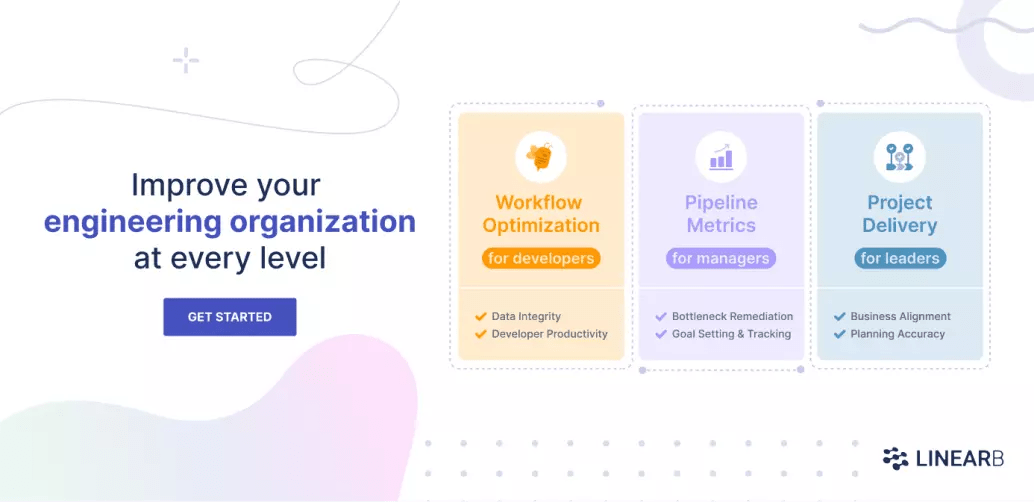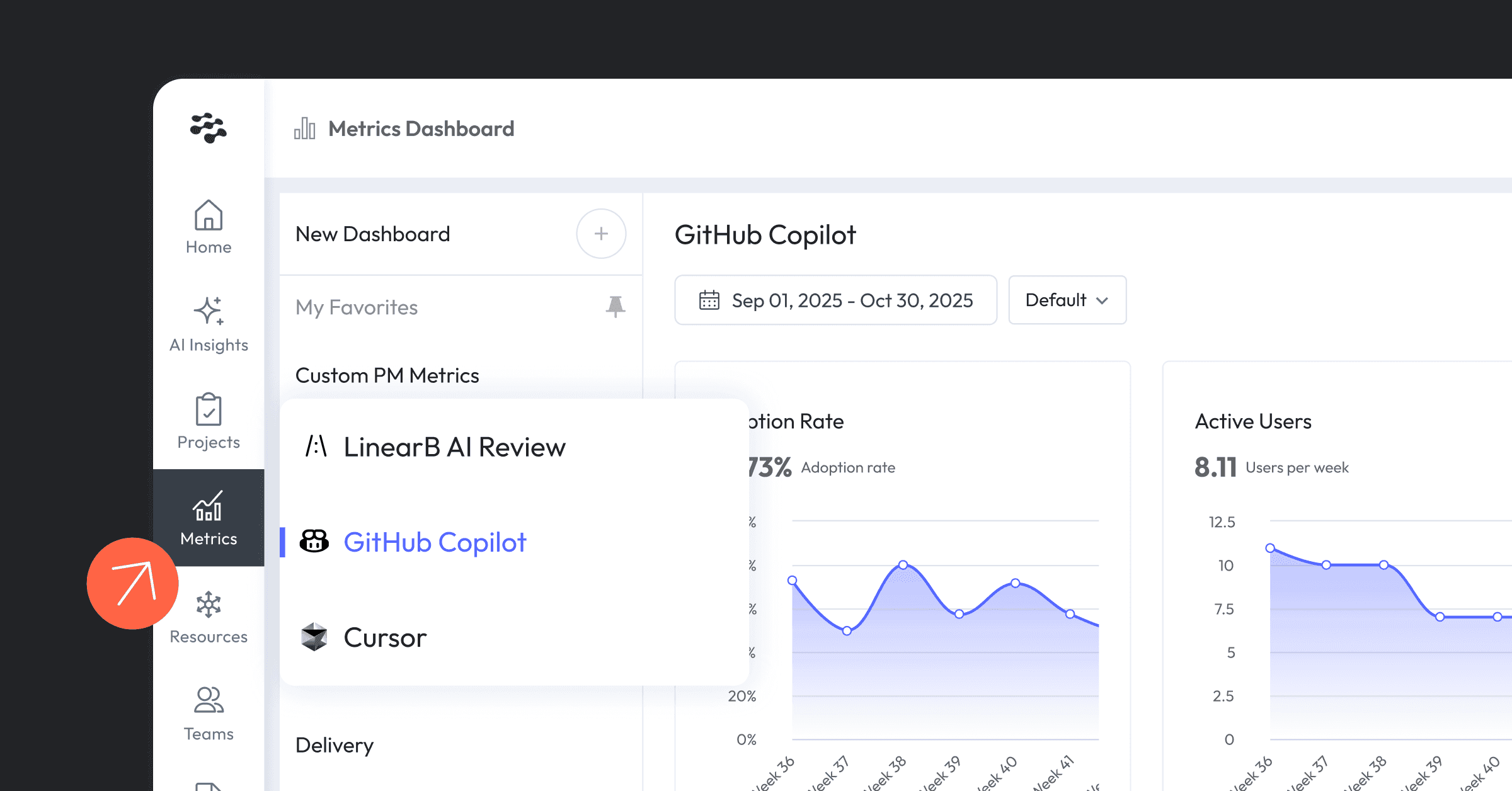Jira has been in our lives since 2002. If you’ve worked on a dev team in the last 20 years, you probably used it. We use it at LinearB to manage our feature backlog and keep track of high-level project tasks.
It provides a lot of value and has grown significantly, but it has a fundamental flaw. Twenty years in and developers still don’t like its manual requirements. (We go into detail in another blog.)
It’s an odd paradox that has existed at the core of engineering organizations for two decades. The business needs to understand the status of engineering projects so it can make educated decisions about resource allocation, delivery timelines, marketing launches and sales campaigns. But engineering teams loathe the manual requirements of keeping their tickets updated every day. So the accuracy of data suffers and the business decisions with it.
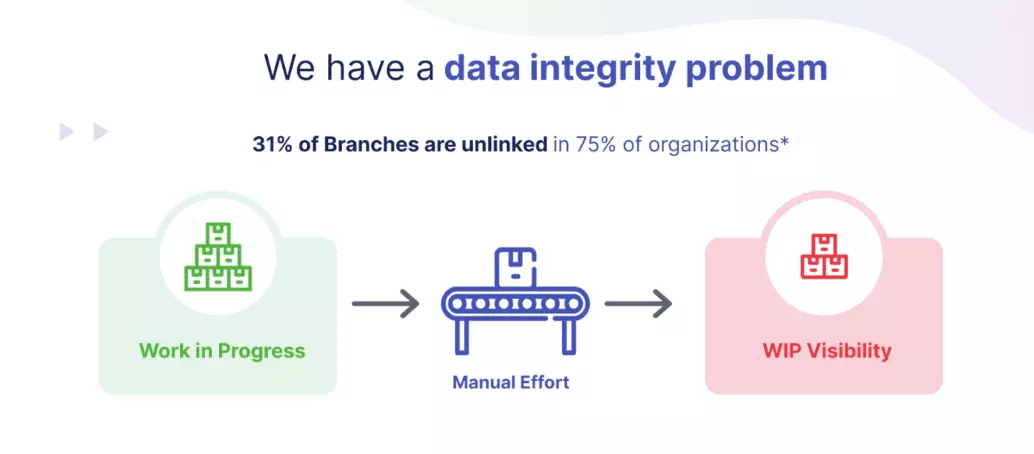
We Have a Data Integrity Problem
“31% of WIP branches are unlinked to Jira tickets”
We analyzed over 1,000 engineering teams that use Jira and found that 31% of their WIP branches were not linked to Jira issues in 75% of the study population. That means the business and in many cases engineering leadership has no idea what 31% of their org is working on.
As engineering leaders, basing our business decisions on two thirds of the data does not instill confidence. Unfortunately in many cases this lack of data hygiene is either unknown or normalized.
But what can we do? Create another “initiative” for teams this sprint to prioritize manual data entry over coding time?
Solving the Data Integrity Problem
“One Click Ticket users have seen a 67% drop in unlinked branches.”
My co-founder and I were both VPs of Engineering before we started LinearB. It was this acute data pain we felt during leadership and strategy meetings that led us to the creation of a data platform for engineering teams.
But even after creating metrics dashboards and project trackers, the underlying data integrity issue persisted.
Solution 1: One-Click Ticket
We are on a mission in 2022 to help developers never log in to Jira again.
While this sounds counterintuitive to classic Jira hygiene practices, the only way to solve the root cause of our data integrity problem is to stop forcing engineers to log in to Jira.
Using our WorkerB Slack and MS Teams integration, we have automated the Jira ticket creation process. We’re calling it our One-Click Ticket.
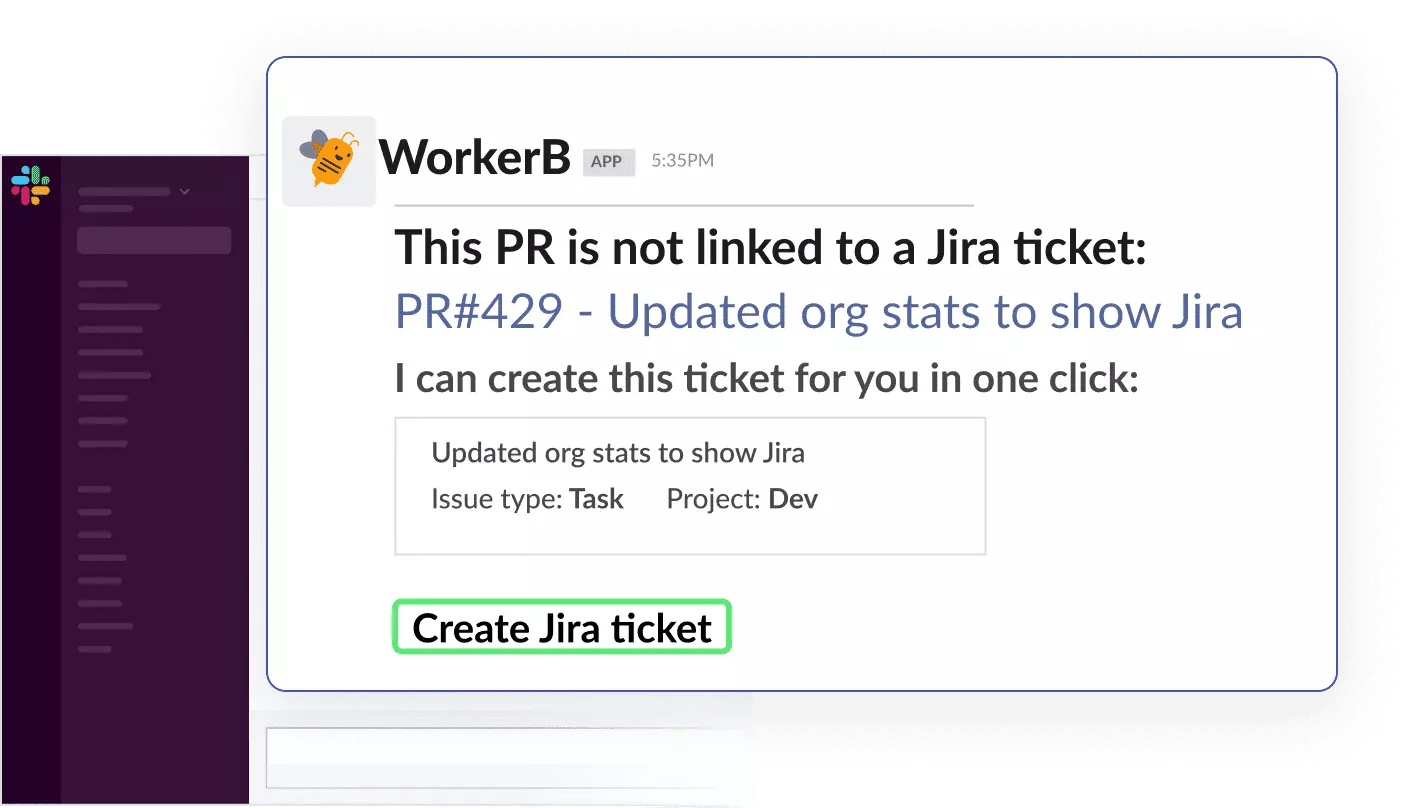
By correlating data between Jira and your Git repository, WorkerB will automatically know when a developer is working on an unlinked branch. WorkerB then prompts the developers with a “Create Jira Ticket” notification. A new Jira Ticket can be created or edited from within Slack, with a single click.
One-Click Ticket simultaneously improves your quality of data and eliminates your reliance on manual tasks.
LinearB users who have started using One-Click Ticket have seen a 67% drop in unlinked branches in the first three weeks. This strategic victory for data integrity has already had rippling effects on business decisions and strategy.
Solution 2: Shadow Work Detector
Another way we are tackling the data integrity problem is by correlating data from multiple tools. The LinearB platform integrates with your project management, git repository and CI/CD tools (incident management coming soon!) so we can correlate data points like the number of unlinked branches being worked on.
Our Shadow Work Detector works in real time to visualize how much work during your sprint is unlinked. It displays the branch being worked on, the developers working on it, and a timeline of when the work happened.
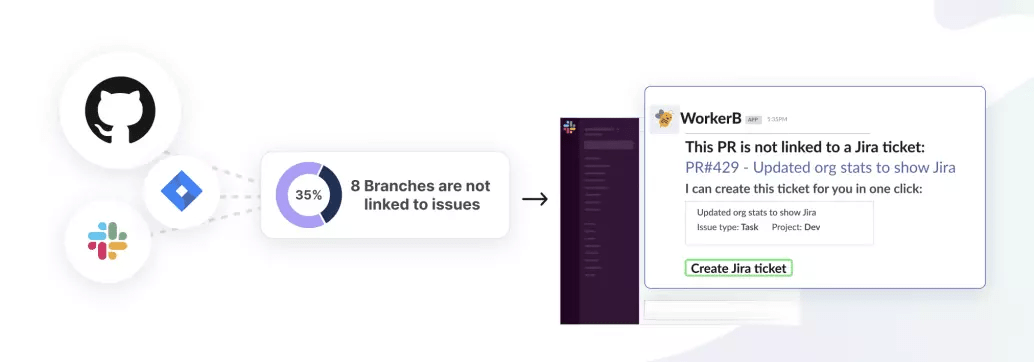
Features like Shadow Work Detector use data correlation to give us the ability to dive deeper than ever before. Engineering teams are now able to identify bottlenecks in their PR review process and with a simple click expose the branches and related project issues tied to that bottleneck. They can track cycle time improvement during a sprint down to the underlying cause, be it smaller PR sizes or less rework.
Continuing to Solve the Problem
Businesses need project management tools to help them make the best decisions possible. But no longer do we have to risk human error in data management to keep the business up to date. Automation is the key to both our data integrity problem and to creating a happier engineering culture.
In 2022 our R&D team is working on a full roadmap of new automated solutions that build on our existing ability to correlate data. One-Click Ticket is an amazing step forward.
